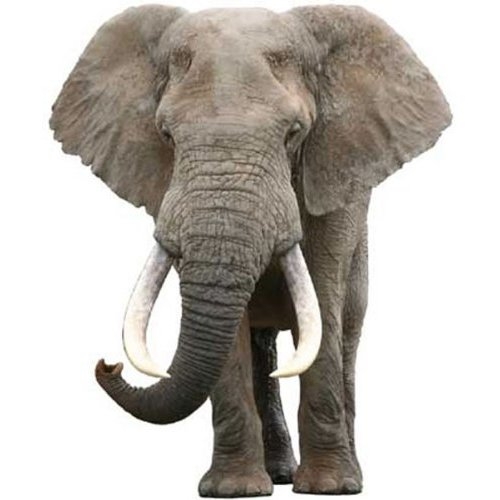 |
| VENACIO - 1900 AD |
Venacio is the Roman Empire's answer to Call of Duty's Veteran difficulty - it's pretty much a certain death game. Again, it's a spectators sport where the player seem to draw the short straw. Pretty much a game of slaves versus Elephants, slaves would be tossed into an gladiators arena, not eager to be killed, and would have to hunt elephants with basic weaponry (or at least weaponry that wasn't suited to the scenario). In some cases, it wasn't elephants, but rest assured, it was never an animal that was easy game. An common contender was the Lion or Tiger for it's ferocious attitude.
These Venacio hunting events have a huge mortality rate, quiet obviously, and where held the day before a Gladiator events (something I'll clearly be researching in a future post) as a kind of support act to the main event. Now, even though many slaves did die brutal deaths, the mortality rate of the animal wasn't something to be proud of, in some cases, up to 9000 animals were slaughtered in one Venacio event, especially in an inauguration of a Colosseum, most notably, 'the' Colosseum.
Three things make this sport interesting when the research topic is considered - one, its goals and violence, two its actual use, and three its influence on culture.
As with many of these blood sports, there are always players, always enemies, always a goal of survival and in every case, there is always violence, either as entertainment or an indicator of success. In this case, violence is for the spectators, not the player, unlike the Vikings Skin Pulling antics. Although spectators would place wealthy bets on the 'famed' slaves. So, I think it's pretty clear now that violence in games have one of two uses throughout history, either for entertainment or indication of reward. What's interesting about this, is that violence has the exact same use now. But why is it frowned upon today? This leads us onto the next point - Culture.
Surprisingly enough, this animal versus human blood sport is what spawned a surge of animal hunting Whether for entertainment or for legitimate resources (Hyde, Tusks, Meat etc). I'm sure PETA would have a lot to say about this now, which just goes to show why concerns are raised in games today. Back then, a game like Venacio was incredibly influential on the primary beneficiaries of the game, so why is it impossible for players to be motivated to kill another human nowadays? This sport is a clear indicator that games can influence the games. It's not an unrealistic assumption that games can be detrimental to society.
Finally, with Venacio, you can again see how games were a measure of power. With the Masoamerican Ballgame, it was a conflict solver. With the Vikings, it was a measure and motivation of power. With the Death Machine, it was an egotistical problem solver. Now, with Venacio, we have yet again, another game to reflect power - the leaders with the most exotic animals were considered the most wealthy. Kind of like a modern strategy game no? The real players are the leaders and spectators not the slaves or animals, they are the tools to measure power.
So yet again, we have another blood sport that reinforces the pattern emergent here, whilst also highlight the contrast and similarities between violence in games now, and violence in games then. A couple more blog posts on violence in ancient games to fill in the date gaps, and then I think I'll move onto modern games and psychological undertones to bring it all together in a nice, informative and conclusive timeline.
Considering there are clear re-occurring themes here, in my future research posts, I only lightly highlight an evident following of the pattern, if there is a stray from this pattern as culture changes, then I shall definitely discuss it for future reference.
As I'm focusing on ancient sports at this present time, my group partner Andrew, has been focusing on violence in board games ranging from all eras. Have a look!
ANDREW SHUFFLETON - VIOLENCE BLOGS
NEXT POST: COMING SOON!
No comments:
Post a Comment